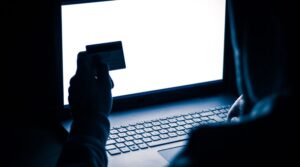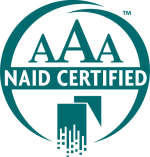
Unauthorized bank activity can wreak havoc on your financial stability, potentially leading to significant stress and monetary loss. Knowing how to handle these issues swiftly and effectively is essential, whether due to identity theft, fraud, or human error. This comprehensive guide will help you understand the steps you can take to safeguard your finances and respond promptly if you notice any suspicious activity in your bank accounts.
The Rising Threat Of Identity Theft
Identity theft is becoming increasingly common. According to the Federal Trade Commission, there were over 4.8 million reported identity theft cases in 2020 alone, amounting to $3.3 billion in consumer losses. This growing threat highlights the importance of staying vigilant and protecting your personal information.
How Does Identity Theft Occur?
Identity thieves use various methods to obtain your personal information, such as your name, date of birth, social security number, and credit card details. They may do this by hacking into databases, phishing scams or digging through your dumpster for old documents, where they impersonate legitimate companies to trick you into giving them your personal information.
Recognize The Warning Signs
It is important to be alert and recognize the warning signs of unauthorized bank activity. Unfamiliar transactions, unexpected account closures, and unauthorized withdrawals are some red flags to watch for. Monitoring your bank statements and transaction alerts can help you catch these issues early.
Immediate Steps To Take If You Notice Unauthorized Activity
If you discover unauthorized activity in your bank account, immediate action is required. Contact the bank’s fraud department to report the suspicious activity immediately. Most banks have protocols to investigate and resolve these issues swiftly, potentially saving you from further financial damage.
Utilizing Digital Security Measures
In addition to securing physical documents, implementing strong digital security measures is essential. Use complex passwords, enable two-factor authentication, and regularly update your banking apps and software to protect against unauthorized access. Hard drive destruction is also necessary to ensure sensitive information cannot be recovered. Data security should be a top priority in your financial management strategy.
Monitor Your Credit Reports Regularly
Regularly monitoring your credit reports can help you identify unauthorized activities that may not immediately appear in your bank statements. Obtain your free annual credit report from the three major credit bureaus and review it for discrepancies or unfamiliar accounts.
Set Up Account Alerts
Most banks offer the option to set up account alerts for various activities. You can stay informed about any unusual activity in your accounts by enabling alerts for transactions, balance changes, and login attempts. These alerts can act as an early warning system, allowing you to take action before significant damage occurs.
Educate Yourself On Common Scams
Staying informed about common financial scams can help you avoid fraud. Phishing emails, phone scams, and fraudulent websites are just a few tactics criminals use. Educate yourself on how to recognize these threats and protect your information.
Secure Your Online Presence
Your online presence can also be a gateway for unauthorized bank activity. Ensure your social media profiles and other online accounts are secured with privacy settings and strong passwords. Be cautious about the information you share online, as cybercriminals can use it to gain access to your financial accounts.
The Importance Of Document Shredding
One often overlooked aspect of financial security is the handling of physical documents. Sensitive information on paper can be as vulnerable as digital data, and improper disposal can lead to identity theft and financial fraud.
Secure shredding of documents that contain personal information, such as bank statements, medical records, and tax returns, can prevent unauthorized individuals from accessing your data. By destroying these documents properly, you reduce the risk of your personal information falling into the wrong hands.
Opt for dependable, professional document shredding services that provide secure collection bins and offer scheduled pickups. This is the best way to ensure that your documents are being handled and destroyed in a secure manner.
Keep Your Personal Information Private
Protecting your personal information is crucial in preventing unauthorized bank activity. Avoid sharing sensitive information like your Social Security number, bank account details, and passwords over email or phone unless you know the recipient’s legitimacy. Always verify the identity of the person or organization requesting your information.
Report Fraudulent Activity To Authorities
In cases of significant fraudulent activity, reporting the incident to the relevant authorities can help prevent further crimes. Contact your local police department and file a report. Additionally, notify the Federal Trade Commission (FTC) and the Internet Crime Complaint Center (IC3) for further assistance.
Consider Identity Theft Protection Services
Identity theft protection services can offer additional security for your finances. These services monitor your personal information and alert you to any suspicious activity. While they may come at a cost, the peace of mind they provide can be invaluable in protecting your finances.
Stay Informed About Your Bank’s Security Policies
Understanding your bank’s security policies and procedures can help you know what to expect if you encounter unauthorized activity. Familiarize yourself with their fraud protection measures, dispute resolution processes, and any guarantees they offer to safeguard your accounts.
Maintain Open Communication With Your Bank
Open communication with your bank can help you resolve issues quickly. Don’t hesitate to contact your bank’s customer service or fraud department with concerns or assistance. They can provide guidance and support to help you protect your finances.
Conclusion
In conclusion, protecting your finances from unauthorized bank activity requires vigilance, proactive measures, and a thorough understanding of digital and physical security practices. By recognizing the warning signs, securing your personal information, and utilizing tools like document shredding and account alerts, you can significantly reduce the risk of falling victim to unauthorized activity.
Southland Shredding is NAID AAA Certified and offers secure document destruction services to help you protect your sensitive information. Contact us today to learn more about our services and how we can assist you with your financial security strategy.




